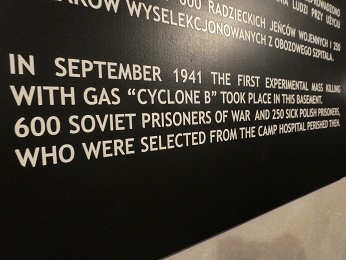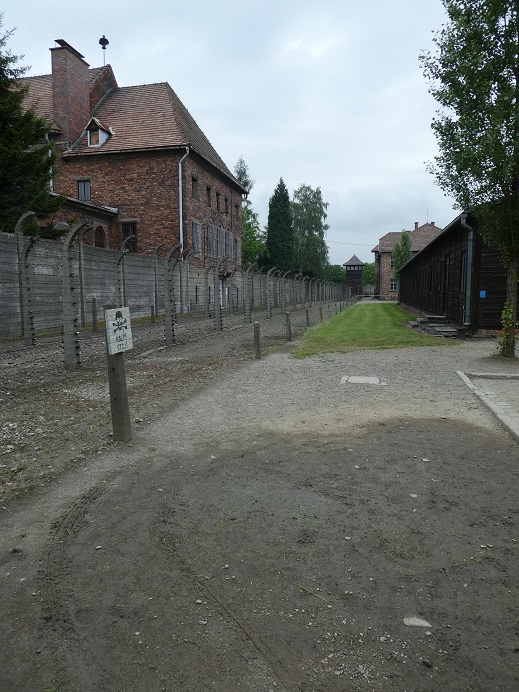
When visiting Auschwitz concentration camp and the Birkenau selection facility in Poland, the sobering reminder of man’s inhumanity to man, was painfully obvious. It was then that I was reminded of a transcript of an interview, I had read some time ago. This transcript discussed the surprising fact that suicide occurs less among those people, who lived in severely impoverished/low socioeconomic areas and those in concentration camps, as opposed to those who have resources and perhaps live in more comfortable circumstances. What can be learnt from the incredible resilience of survivors, who when faced with extreme brutality or hellish circumstances, continue on and survive?
Johanna Reiss explains it like this:
“the middle class and the upper class are much more likely to commit suicide than those who have to find their daily bread, so to speak, (In) Elie Wiesel’s book. In concentration camps, the biggest goal for most of them was to get the next crust of bread. And they were already being punished by the Nazis and so they didn’t think they had to punish themselves too. And so there were very few suicides in concentration camps, which is strange when you think about it, it surely seems like a place you’d want to get away from.”

Kitty Hart a survivor of Auschwitz, in her documentaries, speaks of how she trained herself not to “think,” but just to do – just to live in the moment and do that, without thinking anything about the future, or indeed the next day.

Impact on the Victim’s Circle
A parent’s mental state is forever changed when the tragedy of depression or suicide involves their child, no matter the child’s age, nor whether the child recovers or not. Many of those persons, closest to the victim, experience anguish that seems to leave a permanent scar, for which there is no miracle cure, perhaps only amelioration. How can we promote resilience for these people, who suffer a daily living hell?
“I think you can say that when there is a suicide the entire family becomes totally unhinged. And even though we all seem to go back to normalcy, something has been broken forever. In my own case, having been abandoned by my father in a way – he never was much of a father,and then having being abandoned by Jim. The only person who never abandoned me except when he died was Johan Oosterveld, the farmer in the Upstairs Room, the man who saved my life. He was always there for me. He even left a closet, in his attic, with a hole that you could crawl into, where I had hidden from the Germans. Because he always said: ‘You never know – it might come in handy again, and then Annie you can come back from New York and you can get right back in there.”
[Johanna Reiss, author of a Hidden Life.] Click here to read more
Developing Resilience
I think this is a really important thing to remember if we are to combat suicide rates in all levels…. that the sufferer is not left feeling alone, feeling abandoned. Could it be that if an individual has a sense of responsibility towards another person more vulnerable, or if that person feels that the other absolutely needs them, the victim might cope better/ hang in there/be more resilient, no matter what? Might a reason to stay alive, be that they can then feel hope; that there is somebody or something that is so important, the victim cannot contemplate leaving, no matter how bad things become?
Elie Wiesel wrote about his experiences in a concentration camp as a boy and that he “was considering running into the barbed wire once, but he didn’t because his father needed him.” And that’s the only time he mentions the ‘allure of suicide.’

In reflecting on suicide in today’s world where it appears to be a hidden spectre, together with my own experience with a close friend’s depression and suicidal behaviour, I wonder if the resilience/coping strategies of people such as those mentioned, might just be something that could potentially encourage resilience and give hope to victims, where often there seems none?
Something Serious to Ponder About


